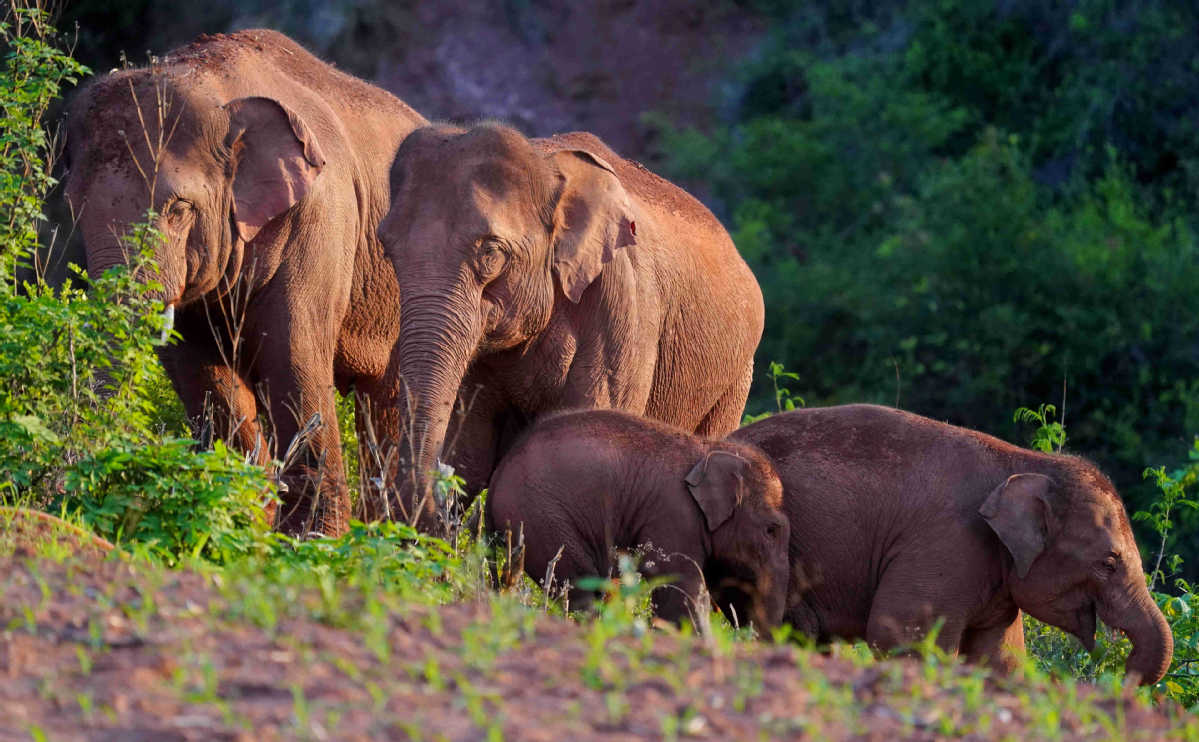China's biodiversity conservation efforts forge a thriving ecosystem


Decades-long efforts
The Asian elephant is another species with an extremely small population -- around 300 in Yunnan while no more than 200 existed in the 1980s.
The mammals were lately in the global spotlight when a herd of 15 wandered in Yunnan migrating northward.
Neither the herd nor residents along its migrating route came in harm's way, which is unsurprising considering the decades-long efforts made by the government and locals in protecting the species.
In August 2015, an abandoned newborn elephant with umbilical cord infection was found by an elderly woman in her woodshed in the city of Pu'er. She fed the baby elephant some water and called up the wildlife rescue station.
Soon after, the calf was sent to the Asian elephant breeding and rescue center in the neighboring Xishuangbanna Dai Autonomous Prefecture.
The veterinary staff performed debridement to treat its inflammation and ingested nutrition. As elephant milk could not be arranged, the veterinarians decided to feed the baby elephant with goat's milk, and hence it was named "Yang Niu" -- the two words meaning "goat" and "girl" in Chinese, respectively.
The first person Yang Niu saw after regaining consciousness was Chen Jiming. Chen had spent six years studying the domestication and breeding of wild elephants before he was recruited by the Asian elephant breeding and rescue center.
To help Yang Niu grow, the staff at the center arranged two female elephants as "temporary mothers" for the baby.
But at the outset, the two just drove Yang Niu away. It was most likely that the elephant calf had the smell of goat. The staff came up with an idea and smeared Yang Niu's body with the dung of the two female elephants. It worked, and the two female elephants began to nurture the calf.
After six years at the reserve, Yang Niu, once at death's door, has revived to vitality, now 170 cm in height and 1,300 kg in weight.
The elephant has become a social media sensation. The staff started an account on the popular Chinese video-sharing app Douyin, the Chinese version of Tik Tok, to share with the public Yang Niu's daily life. The videos have garnered nearly 10 million likes.
To date, the center where Yang Niu grew up has rescued more than 20 wild elephants.
- Spring Festival travel expected to reach record high
- C919 begins Shanghai-HK regular flight
- Mount Qomolangma's foreign tourist number doubles in 2024
- Yuyuan Garden lights up with Year of the Snake lantern installations
- New dendrobium orchid species found in Sichuan
- People welcome the New Year across China





































